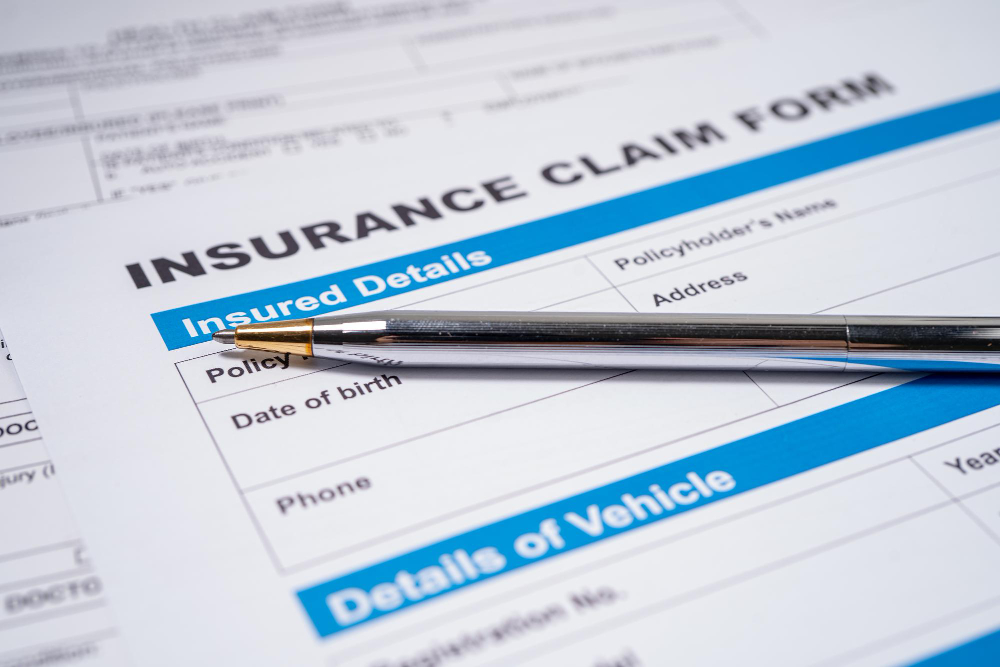 (888) 979-7969
(888) 979-7969
 (888) 979-7969
(888) 979-7969

Navigating a property insurance claim can be a harrowing experience, particularly during the often-stressful times following a disaster or loss. Whether you are a homeowner or a business owner, understanding the intricacies of the claims process can make a significant difference in the outcome of your settlement.
In the face of chaos, an efficiently managed insurance claim can bring peace of mind and financial reprieve. This guide is your roadmap to addressing property claims with confidence. We'll explore the most effective strategies for ensuring that you receive the full compensation you deserve.
The immediate aftermath of a loss is a crucial time for gathering information and ensuring that you'll have a strong case for your insurance claim. Here are the first steps you should take:
Be sure to safely document all damage to your property. Taking photos and videos can be invaluable, so long as it's safe to do so.
Understanding your insurance policy is critical. The terms and limitations within your policy will guide your claim process, so it's important to review them carefully.
You have the responsibility to prevent further damage to your property. This means that if a window is broken, you should board it up to prevent theft or additional weather damage.
When it comes to actually submitting your claim, transparency and timeliness are key.
Contact your insurance provider as soon as possible. In many cases, there are strict time limits on when you can submit a claim after the damage occurs.
Provide a detailed and clear report of the events that led to the damage. Include the date and time of the incident, as well as a general description.
Throughout the claims process, document all interactions with your insurance company. This can include phone logs, emails, and letters.
The insurance company will at this point typically assign an adjuster to investigate the claim and determine the appropriate settlement amount.
It's in your best interest to be present when the adjuster inspects your property, so you can point out all the damages that you've noted.
If the damage is significant, ask your insurer for an advance against the final settlement to cover immediate repair costs.
Insist on a detailed settlement offer that includes all components of the repair work. If you disagree with the estimate or the valuation, be prepared to substantiate your position with evidence.
In many cases, the initial settlement offer may not account for all the repair costs. Negotiation is a crucial skill in this stage of the claims process.
Negotiations with an insurer can be a lengthy process. But persistence can lead to a more favorable settlement.
Familiarize yourself with consumer protection laws regarding insurance claims. Knowing your rights can provide leverage during negotiations.
Public claims adjusters are professionals who can assist in preparing and settling your property insurance claims. They work for you, not the insurance company, and can often help you get a higher settlement.
Once you've reached a settlement agreement, it's time to finalize your claim and move forward with the repairs.
Make sure all agreed-upon terms are documented in writing before you consider the claim settled.
You'll need to decide whether to use the insurer's recommended contractors or find your own. Whichever you choose, ensure the repairs are comprehensive and high-quality.
Remember that your deductible will be subtracted from your settlement amount. Ensure that you understand this cost and how it applies to your claim.
Post-settlement, there are still actions you should take to ensure a smooth recovery and potentially reduce the likelihood of issues with future claims.
Keep records of all expenses related to the repairs, including receipts, bills, and invoices.
Be aware that making a property insurance claim can sometimes lead to increased premiums. Confirm with your insurer that this won't be the case.
Understand how your policy might change over time, and update your coverage as needed. Regular reviews can help you stay prepared for any future claims.
By following these comprehensive steps and strategies, you'll bolster your chances of maximizing your property insurance settlement, thus easing the burden of recovery. Remember, when in doubt, professional assistance from a public claims adjuster can often tip the scales in your favor. Your property is an investment worth protecting, and knowing how to handle the claims process is an essential part of that protection. If you're looking for a public claims adjuster in Orlando, FL, contact Ultra Property Damage today for a free consultation.